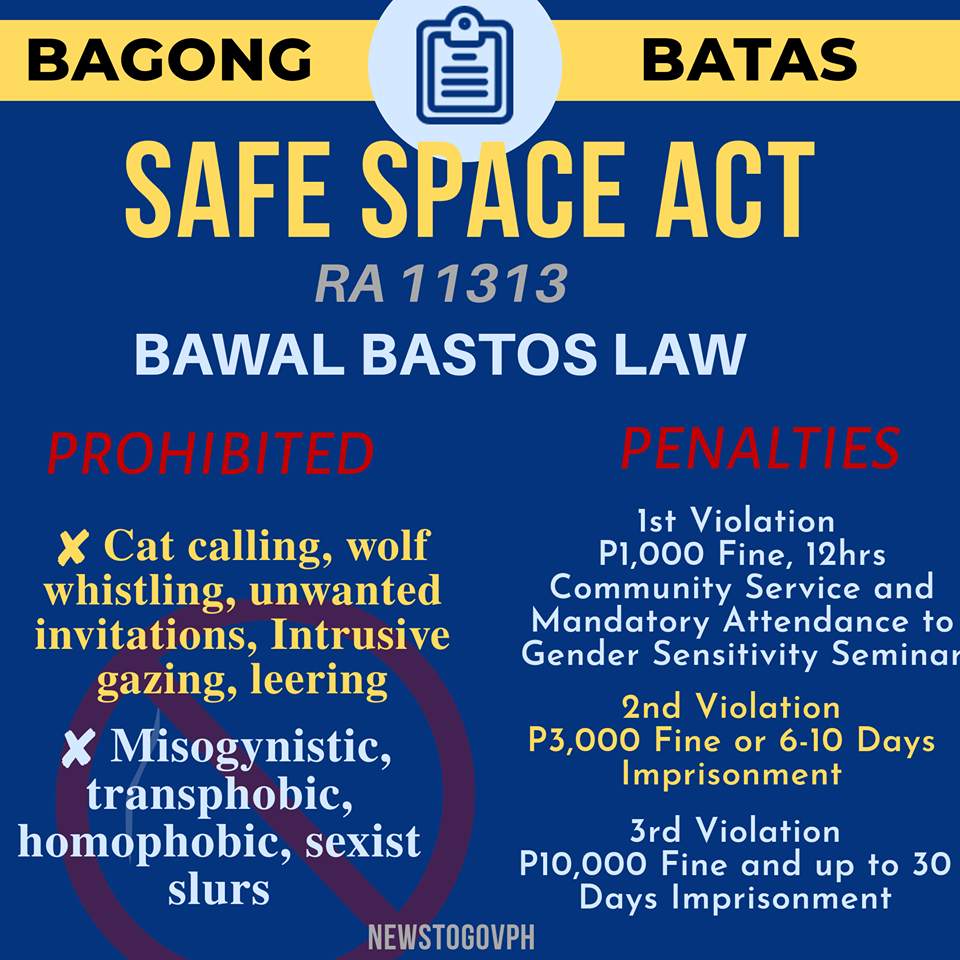Republic Act No. 11313 or “The Safe Spaces Act” – Addressing Gender-Based Sexual Harassment
On April 17, 2019, the Safe Spaces Act, or previously the “Bawal Bastos” bill, was signed into law.
With the aim of ensuring an individual’s sense of personal space and public safety, the Safe Spaces Act addresses gender-based sexual harassment in public areas such as streets, privately-owned places open to the public, and public utility vehicles, among others. It also extends the protection even to cyberspace, and provides for prohibited acts and their corresponding penalties. Below is a summary of the acts punished under the Safe Spaces Act and their corresponding penalties:

In addition to penalizing acts of gender-based sexual harassment in public places, the Safe Spaces Act also expands the 1995 Anti-Sexual Harassment Act. Formerly, sexual harassment was only punished when committed by someone who has authority, influence, or moral ascendancy over the victim. Under the Safe Spaces Act, acts committed between peers, by a subordinate to a superior officer, by a student to a teacher, or by a trainee to a trainer are now covered as punishable sexual harassment.

